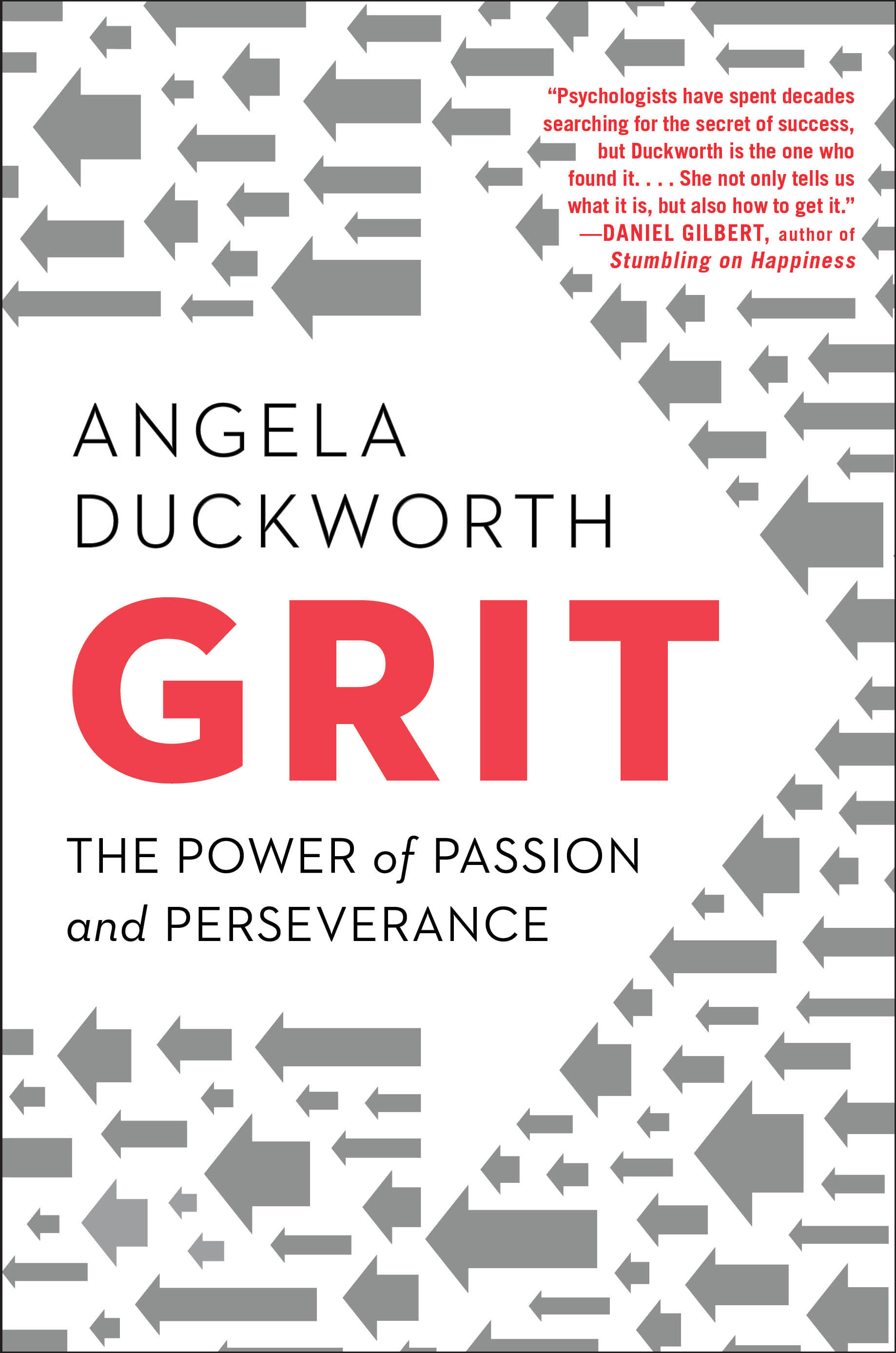The Achievement Equation
Nature vs. nurture, talent vs. hard work -- is there a recipe for success or is it all just the luck of the draw?
Talent, luck, hard work, upbringing, all of these factors play a role in achievement and success. I used to look at a list like this and cringe - so much of it was out of my control, how could I ever hope to be successful? Well, I'm happy to say that there is one aspect that we are in control of, and it's a big one: GRIT.
In her book Grit: The Power of Passion and Perseverance, Angela Duckworth takes grit and gives the word a life of its own. I've read a lot of books about business and personal success, but none have been as well-articulated or as motivating as Grit. The following thoughts are what resonated with me, but I encourage everyone to pick up a copy so that you can have your own epiphany explosion party.

Grit...great...so what's the achievement equation? Ms. Duckworth offers the following simple equation for determining achievement:
talent * effort = skill
skill * effort = achievement
If you haven't already guessed it, the takeaway here is the impact of effort on achievement.
Here's a simple JavaScript function you can try out in your browser console to help you visualize the impact of effort.
function achievementScore(talent, effort) {
var skill = talent * effort;
var achievement = skill * effort;
console.log(achievement);
}
If this isn't incredibly motivating, I'm not sure what is. Whether we start learning a craft when we are 15 or 50, whether we are considered a "natural" or not, we have control over the most critical element of achievement - effort.
So where does grit fall into all of this, and how does it relate to effort? Grit, in my own words, is the combination of those characteristics which allow us to continuously put forth the effort required to achieve mastery. Characteristics like passion, perseverance, and follow-through. Without passion, we will constantly seek other, more fulfilling, endeavors. Without perseverance, we get knocked down and decide to crawl away instead of getting back up. Without follow-through, we won't have the fortitude to stick with a project when the gritty detail work is slowing development to a crawl.
Perhaps most importantly, grit determines how we handle "failure".
In the past, I've been scared to fail, and if I'm being honest, I still am. We hear things like "failure is not an option" and "do or do not, there is no try" all the time, and I always interpreted these sayings as "never fail" or "never mess up", so I did just that, I tried to never fail and never mess up. This fear didn't necessarily keep me from doing things, but it did keep me from really committing or digging in on a number of occasions. If I didn't dig in and fully commit, I thought, I couldn't really fail, because, in my mind, I wasn't really trying. Don't let this be you; it is a calamitous, disastrous, and regret filled way to live.
Luckily, I realized my error in perspective before it could get the best of me. Thinking that failure was bad wasn't what I got wrong. It was my perspective on what failure is. I learned that the only time we fail is when we stop trying, or worse, when we never try at all. Sure, you could argue that when we do something wrong we have "failed", but I'm going to argue that failure is not having the wrong answer or messing up, it's giving up or giving in. When we mess up, all it means is that, like Thomas Edison said, we have found one way of doing things that didn't work. This doesn't mean that we are Stoic the Vast and feel no emotion. Messing up sucks, and it is that feeling that helps us learn, helps us grow, and ultimately find success. The key is to press on and not let those emotions cripple us.
Now that I've said that, I'm going to do a complete 180 and say that sometimes quitting is the right option. If you're familiar with the term sunk cost, you'll know what I'm talking about. Sometimes we put a lot of time, effort, and money into a venture that turns out to be a bust. Our natural instinct is to keep pushing, because, hey, at any moment it's going to start working right? Just a little more money, or a little more effort, maybe a tiny bit more time? Nope, if you're in a job where your efforts aren't respected or if you're investments continually underperform while the rest of the market succeeds, it is time to move on. Like a river, we need to find the path of least resistance and focus on moving forward. This doesn't mean taking the easy way out. It means being flexible, malleable, and maintaining momentum. Our path might be windy and unpredictable, but eventually, we will get to the ocean. If we waste all of our energy and momentum beating on the same stubborn rock, we may never get where we are trying to go.
Hopefully, these last two paragraphs do not seem as contradictory as I originally hinted. The key is to visualize the ultimate goal and pursue it intensely while being mindful of whether our current project or experiment is worth the cost or if our emotions are getting in the way of moving on(I know, super easy right?).
In sum, if you're passionate about something, don't let the fear of failure keep you from diving in, and don't let someone tell you it's too late or that you can't do it (unless that motivates you of course, then find a bunch of those people and let it fuel you!). As the old proverb says, the best time to plant a tree was 20 years ago, the second-best time is right now. Do it. and read GRIT, do that first!
reference: Grit by Angela Duckworth, Sunk Cost
